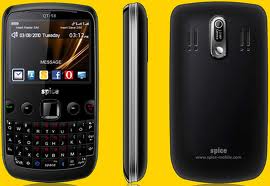the next generation of high-speed wireless technology is already
considered a goldmine for chip companies. Now, with No 3 player Texas
Instruments leaving the market for mobile basebands, the main cell
phone processor — there is now ample opportunity for smaller rivals in
the arena. However smaller players face big challenges as they jostle
to compete behind market leader Qualcomm Inc.
Chip companies on the other hand are eager for orders as cell phone maker’s start producing LTE phones, but the fight for the emerging market is wide open with no obvious leaders besides Qualcomm. Some analysts expect Taiwan’s MediaTek Inc to be a front runner to follow Qualcomm because it already sells a huge volume of chips for phones that use older technologies. Other big contenders include ST-Ericsson, a venture of STMicroelectronics and Ericsson, as well as US chipmaker Broadcom and Germany’s Infineon. On the other hand, Japan’s Renesas Electronics is now in a better position to compete after agreeing to buy the wireless modem business of Nokia.
Among the Asian Players, Prospects of big mobile phone makers Samsung Electronics and LG Electronics look prominent. But at best these companies will end up supplying chips for just some of their own phones, according to analysts who say they will likely need to use Qualcomm chips too. They do not expect other handset makers such as Nokia or Motorola Inc to buy chips from Samsung or LG.
Chip companies on the other hand are eager for orders as cell phone maker’s start producing LTE phones, but the fight for the emerging market is wide open with no obvious leaders besides Qualcomm. Some analysts expect Taiwan’s MediaTek Inc to be a front runner to follow Qualcomm because it already sells a huge volume of chips for phones that use older technologies. Other big contenders include ST-Ericsson, a venture of STMicroelectronics and Ericsson, as well as US chipmaker Broadcom and Germany’s Infineon. On the other hand, Japan’s Renesas Electronics is now in a better position to compete after agreeing to buy the wireless modem business of Nokia.
Among the Asian Players, Prospects of big mobile phone makers Samsung Electronics and LG Electronics look prominent. But at best these companies will end up supplying chips for just some of their own phones, according to analysts who say they will likely need to use Qualcomm chips too. They do not expect other handset makers such as Nokia or Motorola Inc to buy chips from Samsung or LG.












